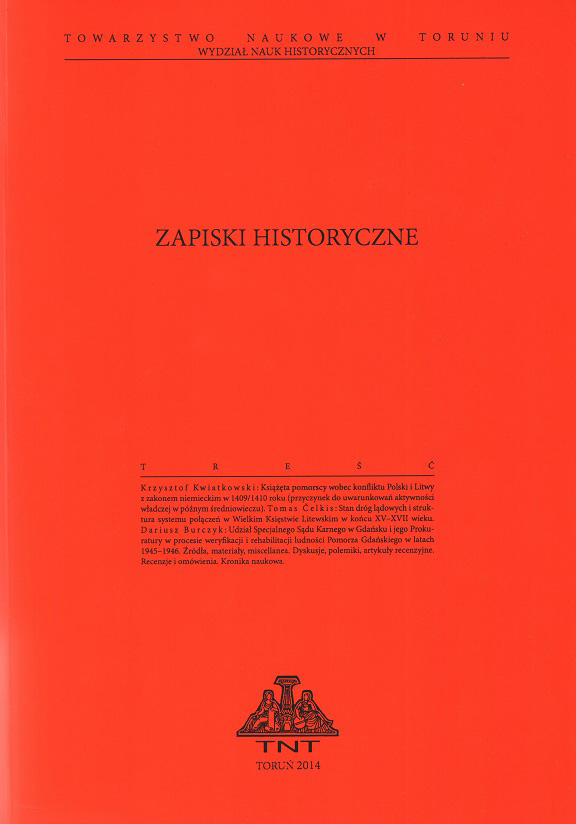Der Ostseeraum als Geschichtsregion
The Baltic Sea Region as a Historical Region
Klaus Zernack’s Concept of North Eastern Europe
Author(s): Jörg HackmannSubject(s): History of ideas, Post-War period (1950 - 1989), Transformation Period (1990 - 2010), Present Times (2010 - today)
Published by: Towarzystwo Naukowe w Toruniu
Keywords: Baltic Sea region; North Eastern Europe; Klaus Zernack; German historiography; historiographical concepts; historical regions; history of historiography
Summary/Abstract: The article presents and discusses the historiographical concept of North Eastern Europe which has been coined by the German historian Klaus Zernack (1931–2017). Firstly, the article looks into the origins of the term, which date back to the nineteenth century, and stresses the significance of the research on the multicultural region of Old Livonia conducted by the Estonian-German historian Paul Johansen. His findings turned out to be crucial for shaping Zernack’s understanding of the concept of North Eastern Europe, which is discussed in the second part of the text. Zernack first referred to the term in his research on early modern Swedish-Russian diplomatic relations, but in various articles published subsequently he expanded his understanding of North Eastern Europe to comprise the multicultural history and political entanglements of the whole Baltic Sea region. The third part of the article discusses the impact of Zernack’s notion. In contrast with the influence he had on shaping the historiographical concept of East Central Europe within German scholarship, North Eastern Europe as a historical region has not gained similar traction among scholars. This may be explained by three factors. Firstly, the Baltic Sea region has once more become a more convincing geographical term, also in international scholarly discussion, especially when compared to Zernack’s deliberately artificial term. Secondly, the notion of Norden, in particular since the 1990s, has expanded to incorporate the three Baltic states of Estonia, Latvia and Lithuania, and thus started, at least partly, to compete with North Eastern Europe. Thirdly, the concept of North Eastern Europe has been ambiguous by a reference to, on the one hand, only the eastern part of the Baltic Sea region and, on the other hand, to this whole region. Thus, North Eastern Europe proves to be an epistemologically stimulating notion that, however, is more difficult to handle outside scholarly debates.
Journal: Zapiski Historyczne
- Issue Year: 86/2021
- Issue No: 3
- Page Range: 117-138
- Page Count: 22
- Language: German

